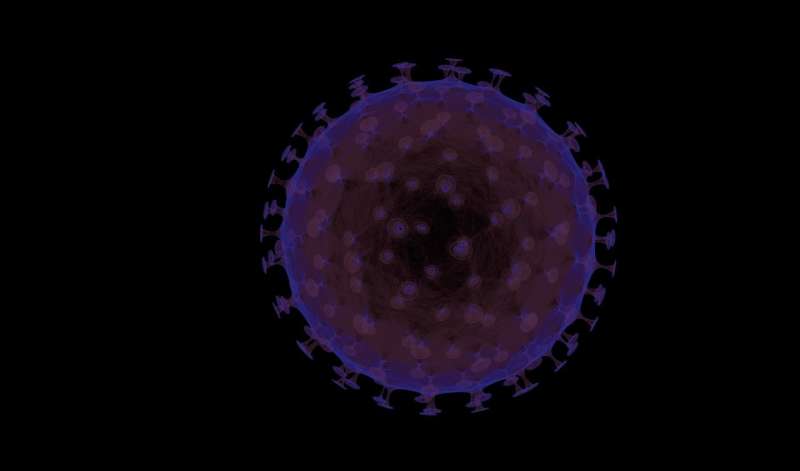Iran surpasses one million COVID-19 cases

Iran said its novel coronavirus caseload surpassed one million on Thursday, as the authorities consider easing restrictions in many parts of the Middle East's hardest hit country.
The Islamic republic had recorded 49,348 COVID-19 deaths and 1,003,494 infections since announcing its first cases in February, health ministry spokeswoman Sima Sadat Lari said.
In the past 24 hours, the virus caused 358 new deaths in the country with a population of more than 80 million, and 13,922 cases of infection, Lari said.
The number of fatalities appears to have eased slightly in the past few days, however, after soaring to a daily average of more than 400 for much of November.
But some officials—including Health Minister Saeed Namaki—admit the government figures are much lower than the actual numbers.
COVID-19 first surfaced in Iran on February 19, when authorities said it claimed the lives of two elderly people in Qom, a Shiite holy city south of the capital.
They were the first confirmed deaths from the disease in the Middle East.
Since then, the authorities have responded by taking a series of measures aimed at halting the spread of the virus.
面对美国的制裁和的双重挑战the pandemic, however, they have never imposed full lockdowns, for fear they would cause further damage to Iran's economy.
US President Donald Trump has imposed wave after wave of sanctions on the Islamic republic since 2018, when he unilaterally withdrew from the Iran nuclear deal.
Despite not imposing lockdowns, non-essential businesses were closed for two weeks in areas at the highest risk on November 21, reinforcing restrictions President Hassan Rouhani said were needed to curb a "third wave" of the outbreak.
The measures apply to the vast majority of cities across Iran, including Tehran and the country's 30 other provincial capitals.
Iranian vaccine
Like most countries affected by the pandemic, Iran—which began developing its own vaccine in the spring—is awaiting the availability of a vaccine against the virus.
Namaki announced on Wednesday that an Iranian company had "obtained a licence to test a vaccine on humans".
Minou Mohraz, a medical epidemiologist with the National Coronavirus Control Committee, announced this week that the animal testing phase had been completed.
They have yet to specify when testing will be carried out on humans.
But Namaki said that if the step was successful, "we will be one of the major producers (of COVID-19 vaccinations) in the region by early next spring".
Iran had "pre-purchased" about 16.8 million vaccine doses "via Covax"—the World Health Organization's (WHO) mechanism for equitable access to vaccines—Namaki was quoted as saying on the ministry's website, though which vaccine was not specified.
In theory, medicines are exempt from the US sanctions, but in reality, international banks tend to turn down transactions involving Iran to avoid being exposed to potential litigation.
'US economic war'
Iran's Foreign Minister Mohammad Javad Zarif on Thursday accused the US of impeding vaccine imports.
"The situation in Iran is pretty bad... unfortunately we're suffering from something more than the rest of the world is, and that is an economic war," he told an online forum hosted by Italy.
In the past few days, health authorities in Iran have indicated restrictions would soon be eased in several parts of the country, including Tehran.
Alireza Zali, who is in charge of coordinating the response to the pandemic in Tehran, said on Wednesday that the risk level in the capital would be eased to medium from high from Saturday.
Zali said schools, universities and mosques would remain closed, but that non-essential businesses could reopen.
On the streets of Tehran, some people lamented that anti-virus restrictions were being ignored.
"As you can see, all the shops are open," said pensioner Amir Bahrami, pointing to stores that were supposed to be closed but were still receiving customers who slipped under partly lowered shutters.
Mohammad Maleki, a salesman, said public transport was "crowded" and called on the government to "increase the number of metro trains and buses" in service.
© 2020 AFP

















